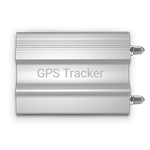| err_code |
Error code ACK |
|
| oper_id |
Operator ID: The Operator ID parameter is derived from the Operator O-Licence number and forms part of a vehicle‟s unique identifier along with the Vehicle ID parameter. |
|
| vehicle_id |
Vehicle ID: The Vehicle ID parameter is derived from the vehicle‟s fleet number and forms part of a vehicle‟s unique identifier along with the Operator ID parameter. Unlike the Operator ID, the fleet number is only unique within an operator and may conflict with other UK operators. Smaller operators without a separate fleet numbering system may choose to use the VRN for this field. |
|
| serv_code |
Service Code: The Service Code parameter will normally be derived from the Electronic Ticket Machine, and will correspond to the TransXChange TicketMachineServiceCode. |
|
| run_board |
Running Board: The Running Board parameter will normally be derived from the ETM, and will correspond to the TransXChange BlockNumber. It may be used to help distinguish multiple journeys with the same start time. |
|
| jou_num |
Journey Number: The Journey Number parameter will normally be derived from the ETM, and will correspond to the TransXChange VehicleJourneyCode. It may assist in uniquely identifying the subject vehicle‟s journey. |
|
| jou_str_tm |
Journey Scheduled Start Time: The Journey Scheduled Start Time parameter will be derived from the ETM, and will correspond to the TransXChange Scheduled Departure Time. The scheduled start time relates to the first in-service stop of the journey, even if drivers have changed in the middle of a journey. |
|
| duty_num |
Duty Number: The Duty Number is derived from the ETM and will correspond to the TransXChange DutyCrewCode. |
|
| pub_serv_code |
Public Service Code: The Public Service Code parameter may be available from the ETM (and corresponds to TransXChange Line Name). Often it will be the same as the Service Code, but there may be minor variations for operational reasons, and the Public Service Code may not always be available. |
|
| direction |
Direction: The Direction parameter is derived from the ETM if it is adopted by operators. Possible confusion could arise however if the route is being shared by more than one service. Typically the following convention should be used: „0‟ = OUT, „1‟ = IN, „2‟ = Circular Clockwise and „3‟ = Circular Anti-Clockwise. |
|
| depot_code |
Depot Code: The Depot Code parameter is derived from the ETM and will correspond to the TransXChange GarageCode. If required, it may be used to identify a service if several depots operate when there are services with the same public service code. |
|
| driver_id |
Driver ID: The Driver ID is derived from the ETM. |
|
| first_stp_id |
First Stop ID: The First Stop ID is derived from the AtcoCode field of NaPTAN and, if adopted, could be used as a route identifier when non-unique journey start times occur. Similarly the Destination Stop ID is derived from the AtcoCode. |
|
| dest_stp_id |
Destination stop ID |
|
| last_stop_ind |
Last stop ID: Optional parameter, set and used by agreement within a scheme. As a single byte, it is intended to refer to the stop number in the stop sequence that constitutes the route, rather than a full NaPTAN ID. |
|
| dist_after_stop |
Distance travelled from last stop: The distance travelled from last stop as derived from any available on-vehicle systems (GPS, odometer dead reckoning, beacons etc). A value of 0 here may be used to indicate that the vehicle has reached its final stop. |
|
| deviation |
Schedule Deviation. This is an optional value to be sent if the OBU has a timetable and is calculating the schedule deviation along the journey. |
|
| event_type |
Message Type Identifier: The Message Type Identifier parameter will be derived from the OBU and describes the Group type of the outgoing message. |
|
| event_code |
Message Code Identifier: The Message Code Identifier parameter will be derived from the OBU and describes the outgoing message in relation to its Group type. |
|
| event_data |
Message Parameters Data: The Message Parameters Data field is an Optional parameter and may be included in the outgoing message if the Message Type and associated Message Code require additional qualification. |
|













